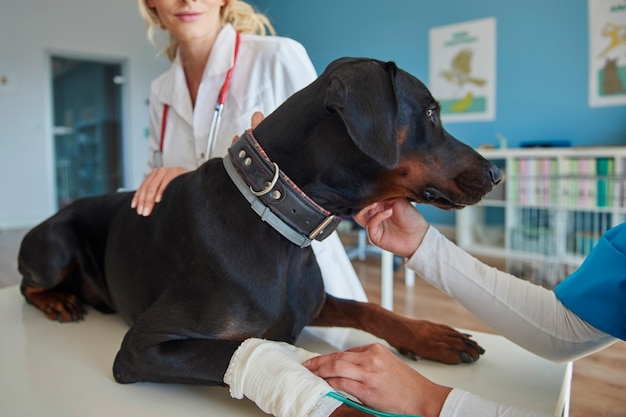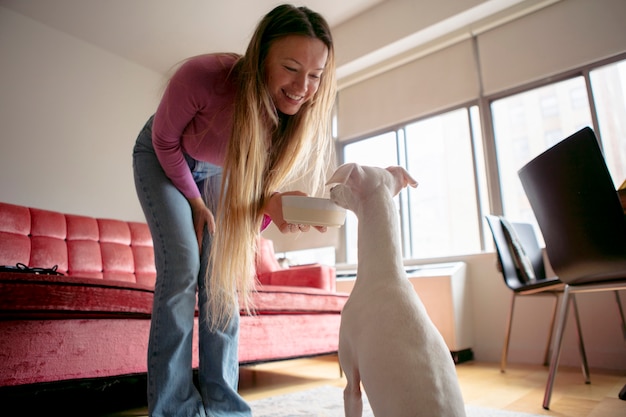Coughing in Pets: Causes, Symptoms, and When to See a Vet


Coughing in Pets: Causes, Symptoms, and When to See a Vet
When your pet starts coughing, it can be unsettling and confusing to know whether it is a simple throat tickle or a sign of something more serious. At Clifton Veterinary Clinic, located in the heart of Clifton, TX, we understand how deeply you care about your pet’s health and comfort. Coughing in pets can be caused by a wide variety of reasons, from mild irritations to significant respiratory conditions that require prompt attention.
In this guide, we will help you recognize when a cough warrants concern, explore the most common causes of coughing in pets, outline symptoms that indicate a visit to our veterinary team is necessary, and offer advice on prevention and home care. Our goal is to empower you to make informed decisions about your pet’s well-being and know when to schedule an appointment for veterinary diagnostics in Clifton, TX. Whether you are searching for a trusted vet near me or seeking quality veterinary services near me, our compassionate team at Clifton Veterinary Clinic is dedicated to delivering comprehensive care and ongoing support for families in Clifton and surrounding communities.
Recognizing the Signs of Coughing in Pets
Coughing in pets can appear in different forms, and understanding what is normal versus what is concerning is the first step toward keeping your furry friend healthy. Occasional coughing might happen if your dog or cat gets a bit of dust in their nose or throat, but persistent, harsh, or unusual coughs often signal a deeper issue.
Key symptoms indicating your pet’s cough may require attention include a persistent or worsening cough that lasts more than a few days, coughing that disrupts sleep or play, or coughs that sound particularly harsh, honking, or wet. Other warning signs to watch for are coughing combined with labored breathing, wheezing, or rapid breathing, as well as coughing that leads to gagging, retching, or vomiting. Some pets may show lethargy, reduced appetite, or nasal discharge alongside their cough, while others might experience episodes of fainting or blue-tinged gums, which can indicate serious respiratory distress.
If you notice your pet struggling to catch their breath, coughing up blood or colored mucus, or showing any sudden changes in behavior, it is important to reach out to your veterinary team promptly. Recognizing pet respiratory symptoms early and seeking professional advice can make a significant difference in your pet’s recovery.
Common Causes of Coughing in Pets
Understanding why your pet is coughing can help you better identify when to seek help and what questions to ask during your visit for pet diagnostics in Clifton, TX. Coughing in pets can result from a range of conditions affecting the respiratory tract, heart, or even the environment.
One of the most frequent causes in dogs is kennel cough, a contagious upper respiratory infection that spreads easily in boarding facilities or dog parks. Other infectious causes include canine influenza and, in cats, upper respiratory viruses such as feline herpesvirus or calicivirus. Heartworm disease, especially prevalent in regions with warm climates like Central Texas, can cause persistent coughing in both dogs and cats. Cardiac conditions, such as congestive heart failure, may also lead to fluid accumulation in the lungs, prompting a chronic cough.
Environmental factors, like exposure to smoke, dust, or household chemicals, can irritate sensitive airways and trigger coughing episodes. Additionally, pets with allergies or asthma may develop coughing alongside other pet respiratory symptoms. Less commonly, coughing can be due to foreign objects lodged in the throat, tumors in the airway or lungs, or tracheal collapse, especially in small dog breeds.
It is important to remember that while some causes are mild and self-limiting, others can progress quickly if left untreated. Our veterinary team uses advanced diagnostics to pinpoint the underlying cause and recommend an appropriate treatment plan tailored to your pet’s needs.
Differences in Coughing Between Cats and Dogs
While both cats and dogs can develop a cough, the presentation and causes can differ. Cats are less likely to cough as frequently as dogs, and when they do, it is often mistaken for gagging or attempts to expel a hairball. Causes in cats more commonly include asthma, chronic bronchitis, or heartworm disease, while dogs may experience coughs from tracheal collapse, infectious diseases, or cardiac problems. Regardless of species, any new or persistent cough is worth a conversation with your veterinarian.
Treatment and Management at Clifton Veterinary Clinic
Once your pet has been evaluated, the treatment for coughing in pets depends on the underlying diagnosis. During your appointment at our Clifton, TX location, our veterinarians will begin with a thorough physical exam, discussing your pet’s history and recent activities. Diagnostic tests such as chest X-rays, blood work, heartworm testing, and, in some cases, airway sampling are often recommended to identify the cause of the cough.
Treatment options may involve medications for certain feline respiratory conditions, or for pets with asthma. In cases of heartworm disease, a specific treatment protocol will be outlined, and heart medications may be recommended for pets with cardiac-related coughs. If allergies or environmental irritants are to blame, our veterinary team will help you identify and eliminate triggers to improve your pet’s comfort.
Supportive care measures, including rest, hydration, and a stress-free environment, can aid in your pet’s recovery. For more severe cases, hospitalization or oxygen therapy may be necessary. We are committed to providing comprehensive veterinary diagnostics and care in Clifton, TX, ensuring every pet receives personalized attention and the best possible outcome.
Ongoing Management and Monitoring
After treatment begins, it is important to follow your veterinarian’s recommendations closely. Monitoring your pet for changes in cough frequency, severity, or any new symptoms will help guide further care. Regular follow-up visits may be needed to assess progress and make any necessary adjustments to your pet’s management plan.
Prevention and Home Care for Coughing in Pets
While not all causes of coughing in pets can be prevented, there are several proactive steps you can take to reduce your pet’s risk of developing respiratory issues. Keeping your pet up-to-date on vaccinations, such as those that protect against kennel cough and canine influenza, is a core part of preventive care. Discussing a heartworm prevention plan with your veterinary team is especially important for pets living in Clifton and surrounding communities, where mosquitoes can transmit the parasite.
Maintaining a clean, smoke-free home environment, using air purifiers if necessary, and minimizing exposure to dust or harsh cleaning chemicals can help protect your pet’s airways. For pets with known allergies or asthma, working with your veterinarian to identify triggers and manage flare-ups is key. When introducing your pet to new animals, especially in boarding or daycare settings, ensure that all pets are healthy and current on vaccinations to minimize the risk of contagious respiratory illnesses.
Providing your pet with proper nutrition, regular exercise, and routine wellness visits with our team supports overall immune health and early detection of any emerging issues. If your pet is recovering from a respiratory illness, allow ample time for rest and avoid strenuous activity until cleared by your veterinarian.
When to Schedule a Veterinary Visit
Knowing when to seek professional help is crucial for your pet’s health and comfort. Schedule an appointment with our veterinary team if your pet’s cough persists for more than a few days, worsens, or is accompanied by other symptoms such as lethargy, poor appetite, or difficulty breathing. Immediate veterinary attention is necessary if you notice blue-tinged gums, collapse, coughing up blood, or signs of pain, as these may indicate life-threatening issues.
At Clifton Veterinary Clinic, we encourage pet owners to trust their instincts. If you ever feel unsure about your pet’s symptoms or need guidance, our veterinarians are here to answer your questions and provide peace of mind. Timely evaluation and veterinary diagnostics in Clifton, TX, ensure that even subtle changes in your pet’s health are addressed before they become serious concerns.
Remember that while some coughs may resolve on their own, others require targeted treatment to prevent complications. Our experienced veterinary professionals work closely with you to develop a management plan tailored to your pet’s unique needs and lifestyle.
Conclusion: Supporting Your Pet’s Respiratory Health in Clifton, TX
Coughing in pets can be caused by a variety of factors, ranging from mild irritants to complex respiratory or cardiac conditions. By staying alert to pet respiratory symptoms, practicing preventive care, and seeking veterinary advice when needed, you can help your pet enjoy a healthier, happier life.
If your pet is showing signs of coughing or you have concerns about their breathing, we invite you to schedule an appointment with our veterinary team at Clifton Veterinary Clinic. We are committed to serving families in Clifton, TX and surrounding communities with compassion and expertise. Whether you are searching for the best vet near me or need trusted veterinary diagnostics in Clifton, TX, our veterinarians are here to support your pet’s health every step of the way.
For peace of mind and personalized care, call us at (254) 675-8925 to schedule your pet’s visit today. If you have any questions or need further information, our team is always here to help. Your pet’s comfort, safety, and well-being are our top priorities.
Disclaimer: This article is intended for informational purposes only and should not replace professional veterinary care. If your pet is experiencing severe coughing or respiratory distress, contact a veterinarian immediately.
For more information on pet respiratory health and resources, you can review trusted veterinary references such as the American Veterinary Medical Association and Cornell University College of Veterinary Medicine.



















